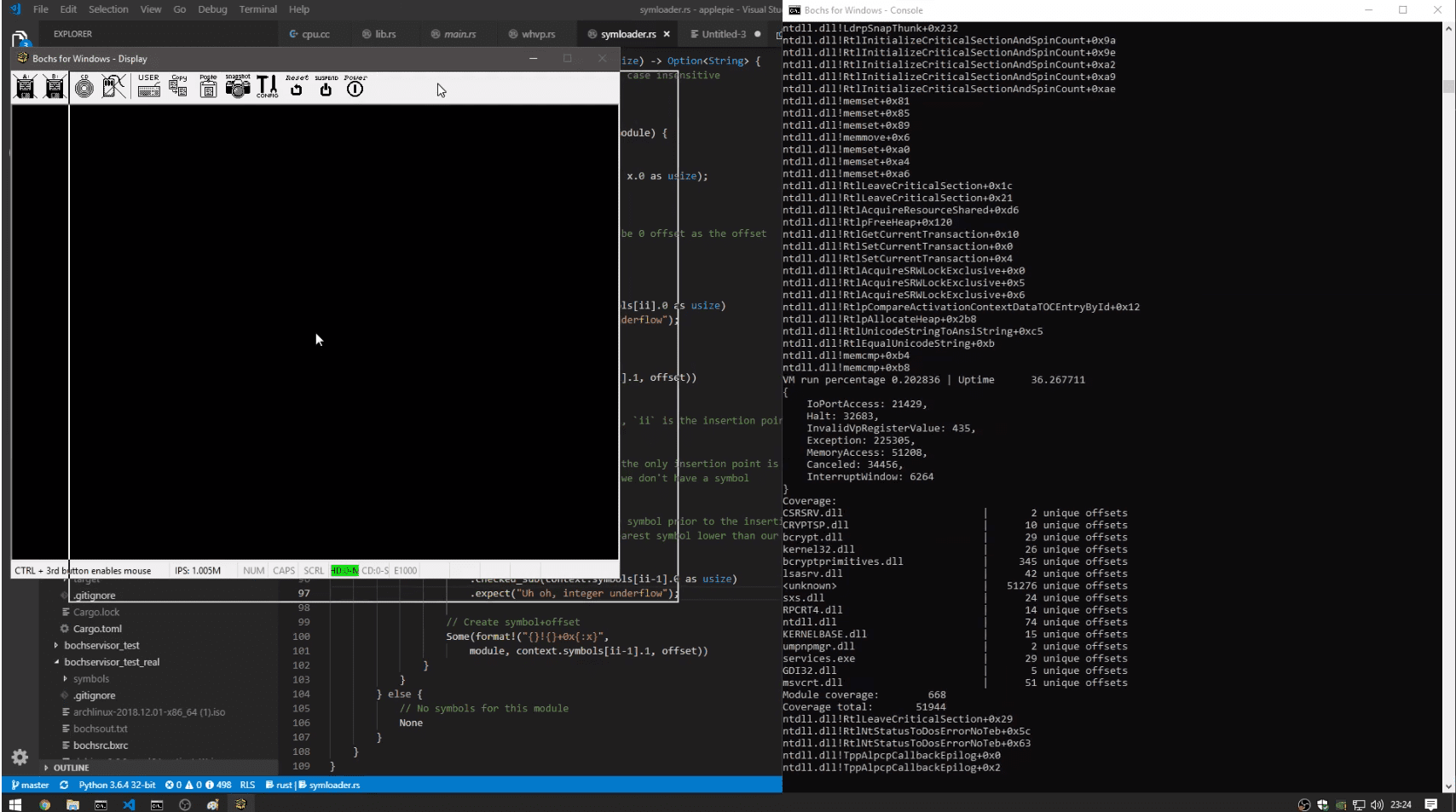
applepie, a hypervisor implementation for Bochs
This is a tool designed for fuzzing, introspection, and finding bugs! This is a hypervisor using the Windows Hypervisor Platform API present in recent versions of Windows (specifically this was developed and tested on Windows 10 17763). Bochs is used for providing deep introspection and device emulation.
The Windows Hypervisor Platform API (WHVP) is an API set for accessing Hyper-V’s hypervisor abilities. This API makes it easy for us to implement a virtual machine all in user-space without any special drivers or permissions needed.

This is a tool designed for fuzzing and introspection during security research. By using a hypervisor common fuzzing techniques can be applied to any target, kernel or userland. This environment allows fuzzing of whole systems without a need for the source of the target. At the hypervisor level, code coverage can be gathered, and if needed Bochs emulation can be used to provide arbitrary introspection in an emulation environment. This coverage information can be used to figure out the effectiveness of the fuzz cases. A fuzz case that caused an increase in coverage can be saved as it was an interesting case. This input can be used later, built on by new corruptions.
Snapshot fuzzing is the primary use of this tool. Where you take a snapshot of a system in a certain state and save it off. This snapshot can then be loaded up for fuzzing, where a fuzz case is injected, and it’s resumed. Since the VM can be reset very cheaply, the VM can be reset often. If it takes Word 5 seconds to boot, but you can snapshot it right as it reads your file, you can cut the fuzz case down to only what is relevant to an input. This allows for a very tight loop of fuzzing without needing to have access to the source. Since the VM’s are entirely separate systems, many can be run in parallel to allow scaling to all cores.
Currently, this tool only supports gathering code coverage, dynamic symbol downloading for Windows, and symbol/module parsing for Windows targets as well. Adding fuzzing support will be quite soon.